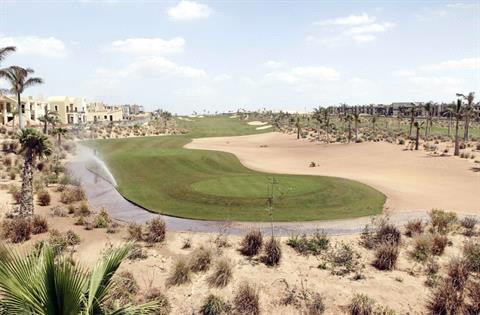Ammon News - CAIRO (Reuters) - One of Egypt’s biggest property developers, SODIC, warned that it was running out of land for new development and said it hoped an interim government would approve new tracts.
Reflecting the wider problems for Egyptian businesses faced by political turmoil since the ousting of President Hosni Mubarak in 2011, real estate development has ground to a near halt.
Dependent on the government to assign tracts of land, developers were thrown into new uncertainty by the army’s overthrow of Islamist President Mohammad Morsi a month ago.
“We desperately need to replenish the land bank,” SODIC’s Managing Director Ahmad Badrawi told Reuters in an interview.
He explained that SODIC had enough land to plan developments only for the next two to three years because the government had not handed out any significant new tracts in the past two to three years.
The ousted government had scheduled a land auction for September and drawn up plans for other land allocations through joint ventures with the state, according to local media.
But media now say the auction has been delayed until December and the joint venture idea scrapped by the interim government set up after the army ousted Morsi.
Badrawi was nonetheless hopeful that the interim housing minister, Ibrahim Mahlab, would go ahead with the auctions. “Like with everything in Egypt nowadays you can’t get too carried away, because you don’t know what potential surprises are around the corner,” he said.
A series of anti-corruption probes after Mubarak’s overthrow targeted many of Egypt’s big property developers and some were jailed.
SODIC was not affected by those investigations, but the turmoil since the 2011 uprising scared off the foreign investors who funded Egypt’s biggest real estate projects.
SODIC’s own plans included two projects on the eastern and western outskirts of Cairo for centers with offices, shops and hotels that would each have needed 10 billion Egyptian pounds($1.4 billion) in investment.
But because of the turmoil, it has focused on smaller residential projects - partly because Egyptians sought to invest against housing as a hedge against inflation. SODIC expected to keep its current emphasis until the situation improved.
“We are just looking for a clear run of a little bit of political stability that will help us again to court investors,” Badrawi said.
The government last year sought to revoke SODIC’s rights over in its east Cairo tract because of delays in development, but SODIC won a court case on April 6 and kept the land.
SODIC’s shares have gained over 13 percent in the past year, outperforming a near 9 percent rise in the broader market.
SODIC, with a market capitalization of nearly $250 million, has asked banks to arrange a new syndicated loan that would allow it to free up existing cash for new opportunities.
“We are in negotiations now to increase our facility from 350 million to 900 million pounds. We are hoping to close in the next couple of months,” Badrawi said.
